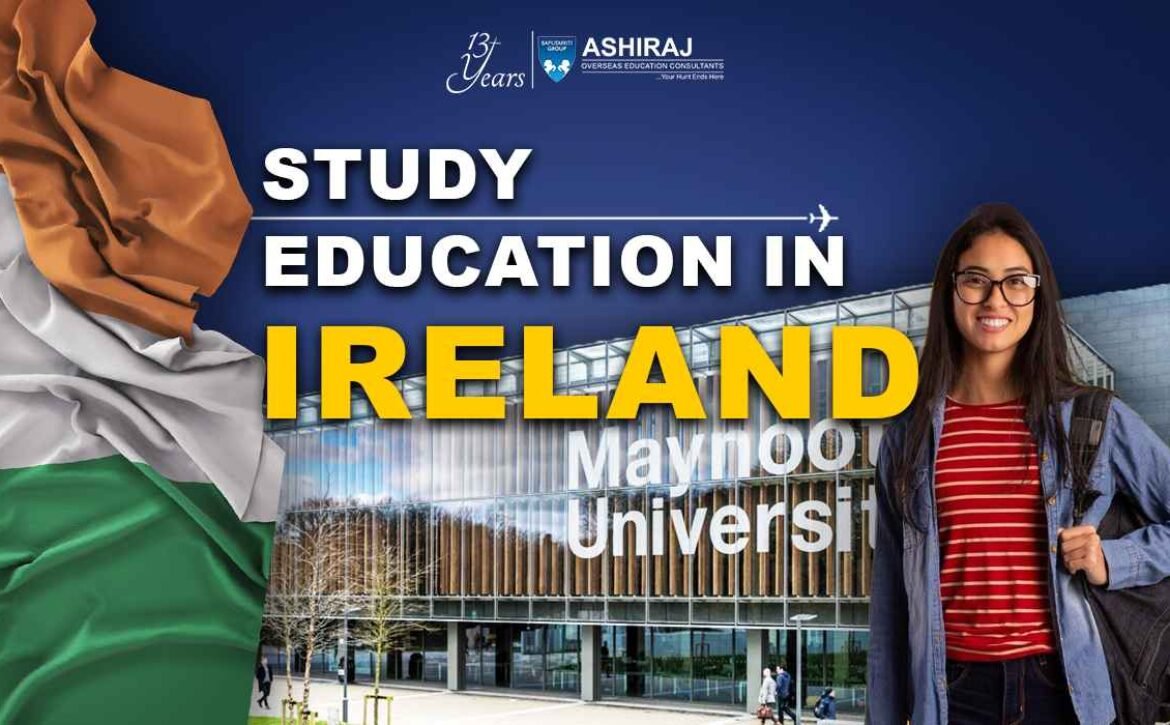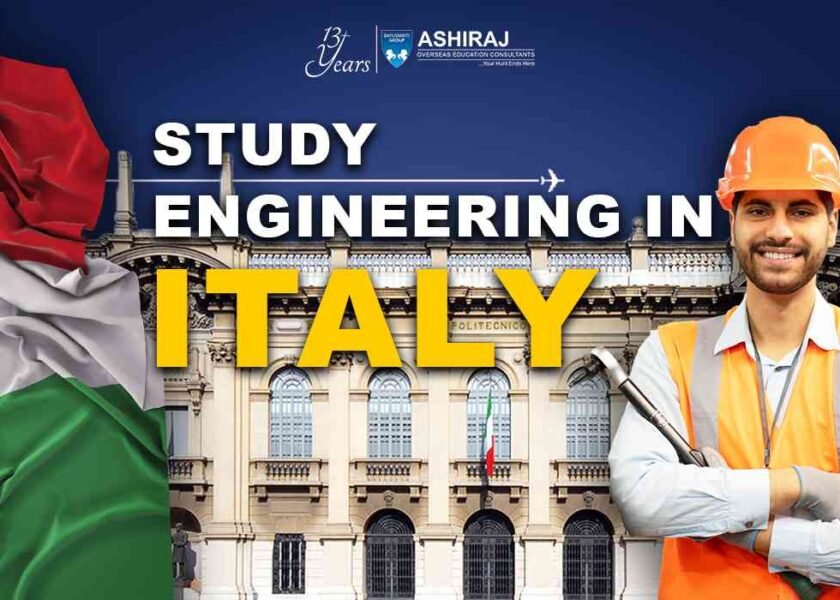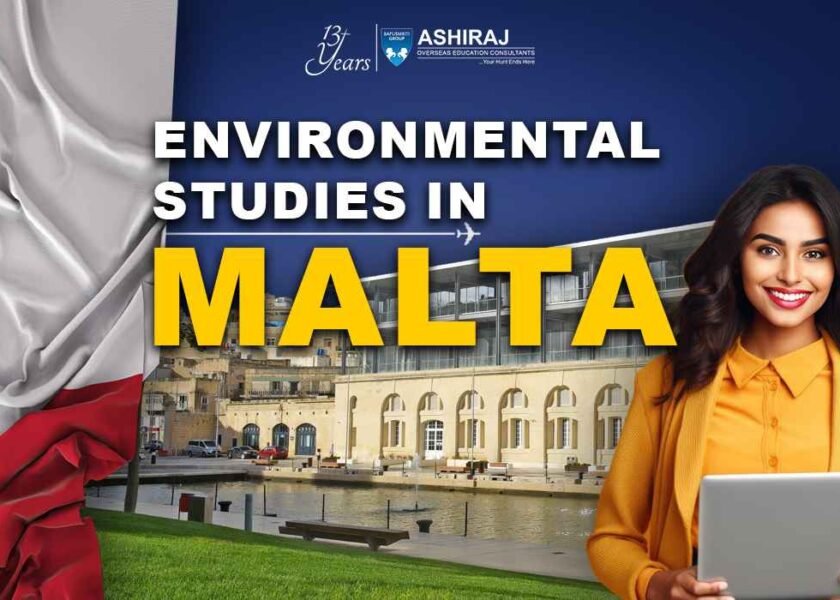
Education in Ireland
In Ireland, education stands as a cornerstone of national identity and progress. Rooted in a rich history of academic excellence and cultural heritage, the Irish education system blends tradition with innovation to foster intellectual growth and social development. From primary to tertiary levels, Education in Ireland is characterized by a commitment to inclusivity, quality, and lifelong learning. Embracing diversity, it caters to the needs of a multicultural society while upholding the values of equity and accessibility.
Education in Ireland encompasses a comprehensive spectrum, comprising primary, secondary, and tertiary sectors. At the primary level, emphasis is placed on foundational skills and holistic development, laying the groundwork for lifelong learning. Secondary education builds upon this foundation, offering a diverse range of subjects and pathways to accommodate varying interests and aspirations. Tertiary education, including universities, institutes of technology, and specialized colleges, cultivates advanced knowledge and critical thinking, preparing students to contribute meaningfully to society and engage with global challenges. With its blend of tradition and modernity, Education in Ireland equips individuals with the skills and insights necessary for personal fulfillment and national advancement.
Why to Study Education in Ireland?
- Rich Educational Heritage: Ireland boasts a long history of academic excellence, with renowned institutions dating back centuries, making it an ideal destination for those seeking a quality education.
- Global Recognition: Education in Ireland is globally recognized for its high standards, ensuring that graduates are well-prepared to compete in the international job market.
- Cultural Immersion: Studying in Ireland offers the opportunity to immerse oneself in a vibrant cultural landscape, with a rich heritage of literature, music, and art to explore.
- Innovative Teaching Methods: Irish universities and colleges are known for their innovative teaching methods, incorporating technology and experiential learning to enhance the educational experience.
- Multicultural Environment: With a diverse student population and welcoming atmosphere, studying in Ireland provides the chance to interact with people from around the world, fostering cross-cultural understanding and collaboration.
- Research Opportunities: Ireland is a hub for cutting-edge research in various fields, offering students ample opportunities to engage in groundbreaking research projects and collaborate with leading scholars.
- Quality of Life: Ireland consistently ranks high in quality of life indices, with its stunning landscapes, friendly communities, and vibrant cities providing an excellent backdrop for academic pursuits.
- Post-Study Opportunities: Graduates from Irish institutions have access to a range of post-study work and immigration options, making it an attractive destination for those looking to build a career abroad.
By choosing to study Education in Ireland, students can benefit from these factors and more, gaining not just an education but an enriching life experience.
Top Universities to Study Education in Ireland
University | QS World University Ranking 2023 | Type of University | Average Annual Fees | Programs Offered |
Trinity College Dublin | 1st | Public | €6,000 – €9,000 | Education, Teaching, Psychology, Sociology |
University College Dublin | 2nd | Public | €6,000 – €9,000 | Education, Counseling, Educational Leadership |
National University of Ireland, Galway | 3rd | Public | €6,000 – €9,000 | Education, Special Education, Early Childhood Studies |
University College Cork | 4th | Public | €6,000 – €9,000 | Education, Adult Continuing Education, Languages |
Dublin City University | 5th | Public | €6,000 – €9,000 | Education, Educational Technology, Language Studies |
- Trinity College Dublin: Renowned for its academic excellence, Trinity College Dublin ranks first in Ireland and offers programs in Education, Teaching, Psychology, and Sociology.
- University College Dublin: Ranked second, UCD provides diverse programs including Education, Counseling, and Educational Leadership, fostering holistic development.
- National University of Ireland, Galway: NUI Galway, ranking third, specializes in Education, Special Education, and Early Childhood Studies, emphasizing inclusive education.
- University College Cork: UCC, ranked fourth, offers programs in Education, Adult Continuing Education, and Languages, catering to diverse learning needs.
- Dublin City University: DCU, ranked fifth, focuses on Education, Educational Technology, and Language Studies, preparing students for dynamic careers in education and beyond.
Course Curriculum for Education in Ireland
- Comprehensive Foundations: Education in Ireland begins with a comprehensive exploration of foundational principles, theories, and methodologies in teaching and learning.
- Pedagogical Techniques: The curriculum emphasizes diverse pedagogical techniques, including active learning, inquiry-based instruction, and reflective practice, to cultivate effective teaching strategies.
- Subject Specializations: Students have the opportunity to specialize in various subjects, ranging from STEM disciplines to humanities, enabling them to develop expertise in their chosen fields.
- Inclusive Education: A key focus of the curriculum is on inclusive education, addressing the diverse needs of learners and promoting equity and accessibility in the classroom.
- Practical Experience: Hands-on teaching experiences, such as practicums and teaching placements, are integrated into the curriculum, allowing students to apply theoretical knowledge in real-world educational settings.
- Assessment and Evaluation: The curriculum covers assessment and evaluation methods, equipping students with the skills to design and implement effective assessments and monitor student progress.
- Technology Integration: Education in Ireland recognizes the importance of technology in education and includes coursework on integrating technology tools and resources to enhance teaching and learning experiences.
- Professional Development: The curriculum also emphasizes ongoing professional development, encouraging educators to engage in lifelong learning and stay updated on current trends and best practices in education.
By encompassing these aspects, the course curriculum of Education in Ireland prepares students to become competent and compassionate educators, capable of making a positive impact in diverse educational settings.
Eligibility Criteria & Admission Requirements for MS in Education in Ireland
- Language Proficiency: Applicants must demonstrate proficiency in English by providing either IELTS or TOEFL scores, with a minimum score of 6.5 for IELTS or 90 for TOEFL iBT.
- Standardized Tests: Depending on the program and institution, applicants may need to submit GRE or GMAT scores. The typical requirement is a GRE score of at least 300 or a GMAT score of at least 550.
- Academic Certificates: Applicants are required to provide academic certificates, including transcripts and diplomas, to demonstrate their educational background and qualifications.
- Work Experience: Some programs may require applicants to have relevant work experience in the field, particularly for postgraduate studies or professional programs.
- Passport & Student Visa: International students must possess a valid passport and obtain a student visa to study in Ireland. The visa application process may vary depending on the student’s country of origin.
IELTS and TOEFL Scores Table:
Test | Minimum Score |
IELTS | 6.5 |
TOEFL | 90 |
GRE and GMAT Scores Table:
Test | Minimum Score |
GRE | 300 |
GMAT | 550 |
Education in Ireland offers a diverse range of programs and opportunities for students worldwide, with clear eligibility criteria ensuring that applicants are well-prepared for academic success.
Documents Required for Studying Education in Ireland
- Passport: A valid passport is essential for international students applying to study in Ireland, serving as proof of identity and nationality.
- Letters of Recommendation (LOR): Typically, two letters of recommendation are required from academic or professional references who can attest to the applicant’s qualifications and character.
- Statement of Purpose (SOP): An SOP provides insights into the applicant’s academic and career goals, motivations for studying in Ireland, and how the chosen program aligns with their aspirations.
- Curriculum Vitae (CV): A comprehensive CV outlines the applicant’s educational background, work experience, achievements, and relevant skills, providing a snapshot of their academic and professional journey.
- Official High School Transcripts: Applicants must submit official transcripts from their high school or secondary education institution, demonstrating their academic performance and achievements.
- Educational Certificates: Along with transcripts, applicants should provide copies of their educational certificates, such as diplomas or degrees earned from previous institutions.
- Work Experience Certificate: If applicable, a work experience certificate highlighting relevant professional experience is required, particularly for postgraduate programs or courses with specific industry requirements.
- Proof of Financial Resources: Applicants must demonstrate sufficient financial resources to cover tuition fees, living expenses, and other costs associated with studying in Ireland, usually through bank statements or sponsorship letters.
Ensuring the timely submission of these documents is crucial for a smooth application process and successful admission to educational institutions in Ireland. Education in Ireland welcomes students from diverse backgrounds, offering a supportive environment for academic and personal growth.
Admission Process for Education in Ireland
- Research Programs: Begin by researching the various programs and universities in Ireland to find the best fit for your academic and career goals. Consider factors such as course offerings, faculty expertise, and campus facilities.
- Check Eligibility: Review the eligibility criteria for your chosen program, including academic requirements, language proficiency tests (such as IELTS or TOEFL), and standardized test scores (such as GRE or GMAT, if required).
- Gather Documents: Collect the necessary documents for your application, including transcripts, educational certificates, letters of recommendation, statement of purpose, curriculum vitae, passport, and proof of financial resources.
- Submit Application: Complete the online application form for your selected university or program, ensuring that all required fields are accurately filled out. Upload your supporting documents as per the application guidelines.
- Pay Application Fee: Pay the application fee, if applicable, as part of the submission process. Some universities may waive the fee for certain applicants or offer fee waivers based on financial need.
- Await Decision: After submitting your application, wait for the university to review your materials and make an admission decision. This process may take several weeks, so be patient and monitor your application status regularly.
- Accept Offer: If offered admission, carefully review the terms of the offer and any conditions that must be met. Accept the offer within the specified deadline to secure your place in the program.
- Obtain Student Visa: Once you’ve accepted the offer, apply for a student visa through the Irish Naturalisation and Immigration Service (INIS) or relevant embassy or consulate. Prepare the required documents, attend any interviews, and await visa approval.
- Prepare for Arrival: Upon receiving your visa, make arrangements for accommodation, travel, and other logistics for your arrival in Ireland. Familiarize yourself with the university and local resources to ensure a smooth transition.
Following these steps will help you navigate the admission process for Education in Ireland, paving the way for a rewarding academic journey in a vibrant and welcoming environment.
“Education is the most powerful weapon which you can use to change the world.”
Nelson Mandela
Cost of Education Course in Ireland
- Tuition Fees: The cost of tuition for studying Education in Ireland varies depending on the university, program, and level of study. On average, undergraduate tuition fees range from €10,000 to €20,000 per year, while postgraduate fees range from €12,000 to €25,000 per year.
- Living Expenses: In addition to tuition fees, students need to budget for living expenses such as accommodation, food, transportation, and personal expenses. On average, students can expect to spend around €10,000 to €15,000 per year on living costs, depending on their lifestyle and location.
- Health Insurance: International students are required to have health insurance coverage while studying in Ireland. The cost of health insurance varies depending on the provider and coverage options but typically ranges from €500 to €1,000 per year.
- Books and Supplies: Students should budget for textbooks, course materials, and other academic supplies. The cost of books and supplies can vary but is generally estimated at around €500 to €1,000 per year.
- Additional Expenses: Additional expenses may include visa fees, travel costs, extracurricular activities, and entertainment. Students need to budget for these expenses to ensure financial stability throughout their studies.
Understanding the cost of studying Education in Ireland is crucial for prospective students to make informed decisions and plan their finances accordingly. Education in Ireland offers a high-quality academic experience in a vibrant and culturally rich environment, making it a desirable destination for international students seeking excellence in education.
Scholarships for Education Courses in Ireland
Scholarship Name | Amount | Application Deadline | Eligibility Criteria |
Government of Ireland International Education Scholarships | Up to €10,000 | Varies | Open to non-EEA students applying for full-time undergraduate or postgraduate programs in Ireland. |
Ireland Fellows Programme | Full Tuition, Stipend, and Travel | Varies | Open to students from eligible developing countries pursuing postgraduate studies in Ireland. |
Irish Research Council Government of Ireland Postgraduate Scholarship | Full Tuition, Stipend, and Research Expenses | Varies | Open to international students undertaking research-based postgraduate programs in Ireland. |
Trinity College Dublin Scholarships | Up to €5,000 | Varies | Available to high-achieving international students applying to undergraduate or postgraduate programs at Trinity College Dublin. |
University College Dublin Global Excellence Scholarships | Up to 50% Tuition Fee Reduction | Varies | Open to non-EU students with outstanding academic records applying for undergraduate or postgraduate programs at UCD. |
These scholarships offer financial support to international students pursuing Education in Ireland, helping to alleviate the financial burden of tuition fees and living expenses. By providing opportunities for academic and personal growth, Education in Ireland continues to attract talented individuals from around the world, fostering a diverse and inclusive learning environment.
Career Opportunities After Education in Ireland
Job Profile | Average Salary (EUR) |
Primary School Teacher | €30,000 – €40,000 |
Secondary School Teacher | €35,000 – €45,000 |
Special Education Teacher | €35,000 – €50,000 |
Education Administrator | €40,000 – €60,000 |
Educational Psychologist | €45,000 – €70,000 |
Education in Ireland opens up diverse career opportunities for graduates, ranging from teaching roles to educational administration and psychology. Primary and secondary school teachers play vital roles in shaping young minds and can expect competitive salaries ranging from €30,000 to €45,000 annually. Special education teachers, who provide tailored support to students with diverse needs, earn between €35,000 to €50,000 per year. Education administrators, responsible for managing school operations and policies, command salaries ranging from €40,000 to €60,000 annually. Educational psychologists, who assess and support students’ emotional and learning needs, enjoy higher salaries ranging from €45,000 to €70,000 per year. With a commitment to excellence in education, Ireland offers rewarding career paths and competitive salaries for professionals dedicated to making a difference in the lives of learners.
Frequently Asked Questions About Education in Ireland
Entry requirements vary depending on the level of study and institution. Generally, international students need to meet academic qualifications, and language proficiency (usually through IELTS or TOEFL), and may require standardized test scores (such as GRE or GMAT for postgraduate programs).
Yes, there are various scholarships available for international students in Ireland, including government-funded scholarships, university-specific scholarships, and external funding opportunities. These scholarships often cover tuition fees, and living expenses, and sometimes include travel allowances.
The cost of studying in Ireland varies depending on factors such as tuition fees, accommodation, living expenses, and personal spending habits. On average, international students can expect to spend between €10,000 to €20,000 per year on tuition fees and around €10,000 to €15,000 per year on living expenses.
Yes, international students in Ireland are permitted to work part-time during term time and full-time during holidays. Students can work up to 20 hours per week during term time and full-time during scheduled holidays.
To apply for a student visa for Ireland, you need to gather the required documents including a letter of acceptance from a recognized Irish educational institution, proof of sufficient funds, health insurance, and a valid passport. You then apply online through the Irish Naturalisation and Immigration Service (INIS) or the relevant embassy or consulate.
Yes, most universities in Ireland require proof of English language proficiency, typically through tests such as IELTS or TOEFL. The minimum score requirement varies depending on the institution and program.
Popular fields of study in Ireland include business, engineering, computer science, medicine, life sciences, and humanities. Ireland is also known for its strong programs in areas such as education, arts, and social sciences.
Yes, international students studying in Ireland are usually eligible to access healthcare services through the public healthcare system. They may need to pay a student contribution fee, but many services are provided free of charge or at a reduced cost.
Yes, after completing their studies, international students in Ireland can apply for a post-study work visa, which allows them to stay in Ireland and work for up to two years. This provides an opportunity to gain valuable work experience and potentially transition to long-term employment.
Ireland is generally considered a safe country for international students. The crime rate is relatively low, and the Irish people are known for their friendliness and hospitality. However, students should still take common-sense precautions and familiarize themselves with safety guidelines and emergency procedures.




